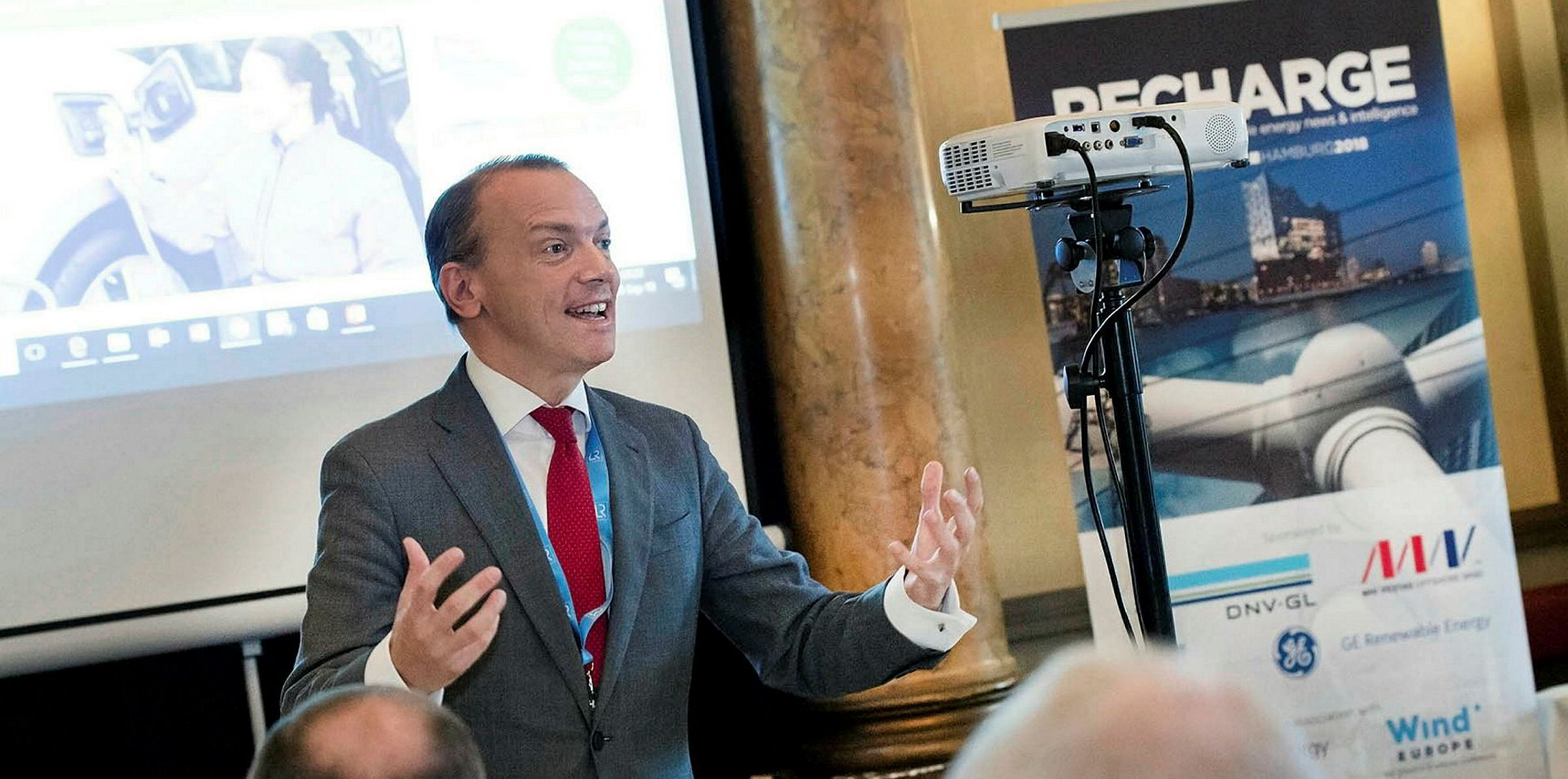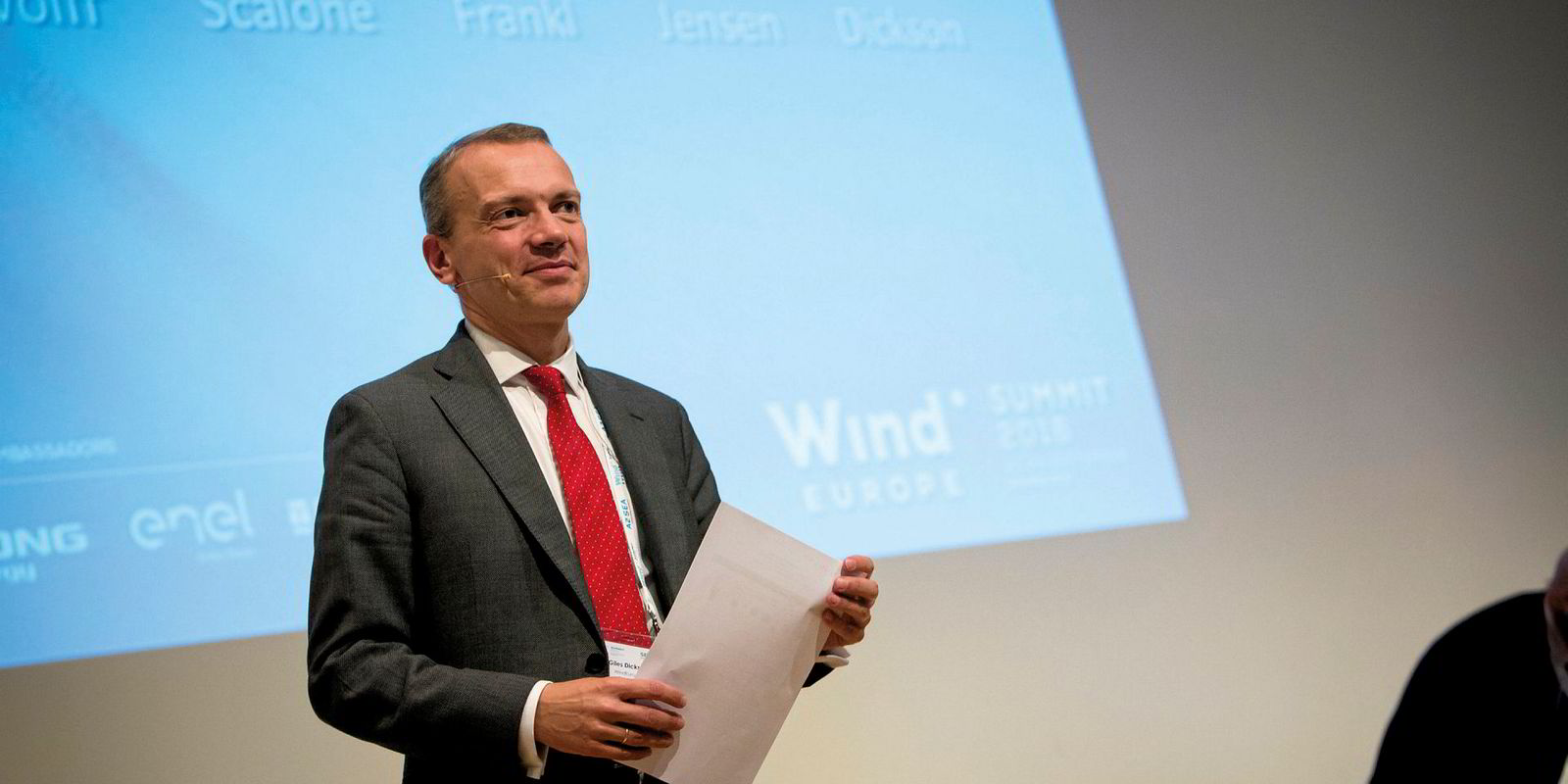Is there anything inevitable about the further expansion of renewables ?
You’ve all seen the charts that show us rising to 55% of Europe’s power mix by 2030 and 80% by 2050. You’ve read the reports that say we can help electrify heating, transport and industry.
You see the amazing numbers in the WEO each year that show a trebling if not quadrupling in wind and solar output. [IEA executive director] Fatih Birol will no doubt tell us all about it in the conference.
And yes, it’s tempting to think we’re riding some unstoppable wave. Hell, we’re the cheapest. We bring energy security. Loads of jobs. Our technology’s getting more powerful and efficient. Storage and demand response are going to solve our system integration issues. And all the opinion polls show people want more renewables.
But let’s just step back and look at the reality out there.
Here in Germany, the rate of successful permit applications for wind farms is 70% down on what it was two years ago. And new solar installations are running well below the Government’s own target.
Across Europe hub height, tip height, distance rules and radar regulations are making it harder to develop projects. And we’re set to lose 4-6GW of existing wind in Europe over the next five years, because the sites cannot be extended or repowered.
Our supply chain (at least we still have one in wind) is under huge pressure from low auction prices and Chinese competition. Just two years ago, the gearboxes in Europe’s new wind turbines were 100% made in Europe. Today 50% come from China. Outside of Europe we still beat the Chinese in quality and often on price. But we lose every time on the terms of finance.
And let’s go back to public opinion. Local opposition to new renewables is better organised and funded. Not to mention the local opposition to the grid investments we need.
OK, but isn’t there a higher political consensus around renewables now the EU’s agreed 32%? Well let’s hear what or mainstream politicians are saying...
There are major political forces out there now that really do not like us.
“I used to think Russia was the biggest threat to energy security in Europe. Now it’s the rising penetration of intermittent renewables.” That was Alvaro Nadal, Spain’s then energy minister, at last year’s IEA Ministerial. He’s out of power now, but his party has far more seats in Parliament than the current minority government.
“There should be no new wind farms built in Germany for the time being.” That’s Jens Köppen, energy spokesman in the Bundestag for the CDU, just a few weeks ago.
And then of course there are the populists. For most of them, renewables are part of the modern, global liberal order they’re attacking. There are exceptions, such as 5 Star. And many US States are minimising the impact of Trump. But there are major political forces out there now that really do not like us. And even if we keep them out of power, they are contaminating policy in the mainstream parties, as we’ve seen in the CDU.
I could talk about the continued expansion of coal in Asia. But I think you’ve got the answer to the original question. No, there is absolutely nothing inevitable about the further expansion of renewables.
Sorry, I don’t want to depress you. Of course many things are going better than they used to: energy intensives used not to like renewables, now they’re signing PPAs. And of course, you’re all familiar with the challenges I’ve listed and are doing lots of things to tackle them, which we’ll be discussing all week here in Hamburg.
But I do want to impress on you the mindset we’re now trying to bring to the wind industry. Humility. Modesty. That nothing is a given. That we have to make a huge effort to carry people with us. To show people we’ll reduce their energy bills. That they’ll still have power on dark windless days. That we bring local jobs and growth to non-metropolitan areas in our societies that feel the most left behind by globalisation.
And if we do manage to keep expanding, then don’t forget the physical reality of all the land and sea we’re going to be occupying. And all the other economic and societal interests that depend on that space, and are going to feel threatened by us. Fishing, shipping, the military, biodiversity.
Happy co-existence is what we call it in our industry. But again, it’s only with modesty and humility that we’ll achieve it. And with a clear recognition that nothing is inevitable – and we have to fight for every new turbine and panel.
Giles Dickson is CEO of WindEurope.


